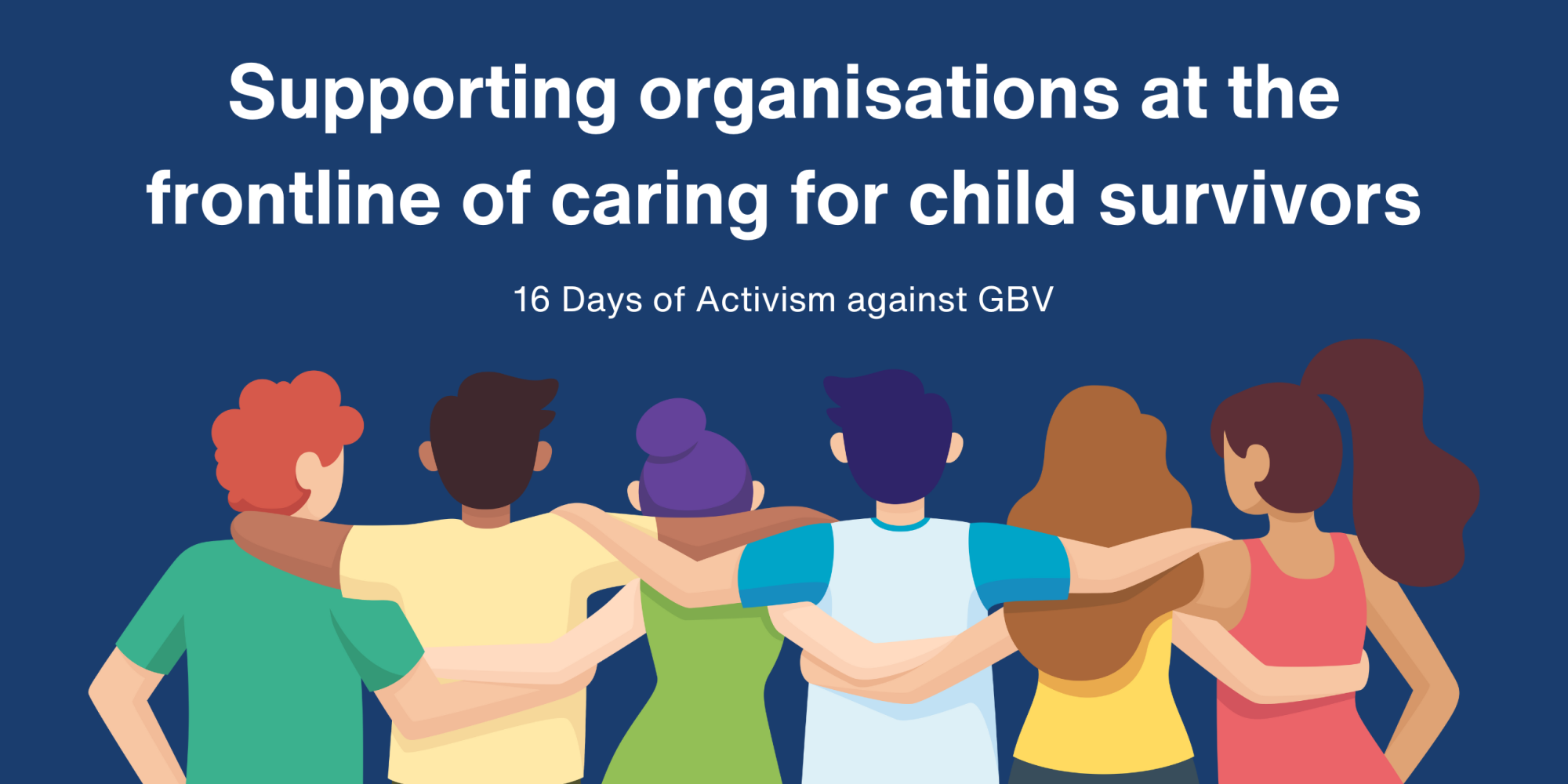
During these 16 Days of Activism against Gender-Based Violence (GBV), Social Development Direct (SDDirect) colleagues Clare Hollowell and Hanna Smit are focusing on child survivors of sexual abuse, by facilitating a training on the new Caring for Child Survivors guidelines, jointly organised by UNICEF and UNHCR.
Caring for child survivors of sexual abuse is a vital part of both child protection and gender-based violence work. However, the specific needs of children are often overlooked or ignored. Child Protection and GBV caseworkers alike need to be supported to understand these needs, and how they can be child-centred in their work with child survivors.
The “Caring for Child Survivors” (CCS) guidelines and training materials were first launched in 2012 to help organisations working with children to use case management procedures with children at different stages of development. In 2023 UNICEF and the IRC produced an updated second edition. This version strengthens the connections between the best interests of the child and the survivor-centred approach – thinking through how to trust and believe children, to help them express their needs, and consider how to protect their safety. There is also a stronger focus on intersectionality to help those who are most marginalised, including guidance on supporting children with disabilities, from different ethnic backgrounds, and those who identify as LGBTI.

The training that SDDirect facilitated in Nairobi last week is part of UNICEF and UNHCR’s global rollout of these new guidelines. The training – the first regional Training of Trainers using the new guidelines - brings together practitioners and leaders from Ethiopia, Kenya, Nigeria, South Sudan, Sudan and Uganda, who are sharing their experiences, challenges and hopes for the future in supporting child survivors of sexual abuse. Mansur Bran works with refugees in Uganda, supporting children with case management services.
“This training has helped me gain skills I was missing out on before, so now I can share these with my team and other organisations in Uganda. This way we can all have better quality services for the children we work with who have complex needs.”
Many of the participants in this training come from local and national organisations. These organisations, especially women-led organisations (WLOs) and refugee-led organisations (RLOs) are at the forefront of supporting child survivors of sexual abuse. Ladi Clark is the leader of a network of Women-Led Organisations in North East Nigeria, where she sees the need for these guidelines on caring for child survivors of sexual abuse. She says:
“I am optimistic for the future – I think we can mitigate GBV and reduce it. We will look together at sexual violence against children, so that we can work together to protect and empower them.”
In addition to providing case management, these local and national organisations participating in the training are tireless advocates for more gender-equal societies, and provide vital support for those who have been displaced from their communities, ensuring children get the care they need and deserve.
We invite you to check out these organisations to discover more about their fantastic work:
In Ethiopia:
Ethiopian Orthodox Church Development and Inter-Church Aid Commission
Ethiopian Women Lawyers Association
In Kenya:
Marsabit Women Advocacy and Development Organization (MWADO)
In Nigeria:
Borno Women Development Initiatives (BOWDI)
Grassroot Initiative for Strengthening Community Resilience (GISCOR)
Life at Best Development Initiative (LABDI)
Zenith of the Girl Child and Women Initiative Support
In South Sudan:
EVE Organisation for Women Development
Women for Justice and Equality (WOJE)
In Sudan:
Women and Child Care Organisation (wcc.kassala@gmail.com)
In Uganda:
Humanitarian Assistance and Development Services (HADS)
Young African Refugees for Integral Development (YARID)